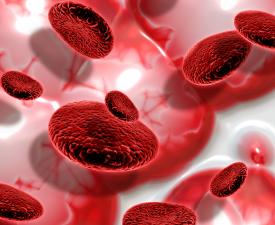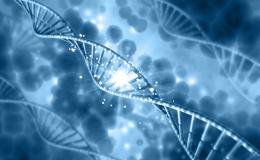What Are the Signs and Symptoms of Blood Cancer?
September 15, 2020
Cancers are divided into two types: solid tumor cancers that form tumors and blood (or hematologic) cancers that typically do not form a solid tumor. In recognition of Blood Cancer Awareness Month this month, we take a closer look at the three main types of blood cancer, the signs and symptoms of blood cancer, and what you should do if you or someone you care about is experiencing symptoms of the disease.

There are three major types of blood cancer:
Leukemias are cancers that involve white blood cells, which are cells in your blood that are responsible for fighting infection. White blood cells are produced in the bone marrow. With leukemia, the body produces too many abnormal white blood cells that do not function properly, which can affect the immune system. Leukemias can advance quickly (acute) or slowly (chronic), depending on the specific cancer. Some leukemias are more prevalent in children and some are observed primarily in adults.
Lymphomas are cancers of the lymphatic system, which is made up of the lymph nodes, bone marrow, thymus gland and the spleen. Lymphomas affect lymphocytes, a type of white blood cell that is involved in immune system function. There are two main types of lymphoma: Hodgkin’s lymphoma, which is better understood by the medical community, and non-Hodgkin lymphoma. This is the most common form of cancer in adults.
Myelomas are cancers of plasma cells, which are white blood cells that are responsible for making antibodies to help the body fight infection. In myelomas, cancerous plasma cells multiply in the bone marrow and interfere with the function of normal blood cells, compromising the function of the immune system and causing fatigue.
Symptoms of blood cancers can vary widely, depending on the type and stage of blood cancer. Signs and symptoms of blood cancer can include:
- Frequent and/or severe infections
- Bone tenderness and pain
- Fatigue and weakness
- Loss of appetite or nausea
- Unintentional weight loss
- Weakness or numbness in legs
- Swelling of lymph nodes without pain
- Fever or chills
- Night sweats
- Shortness of breath
- Itchy skin
- Excessive thirst
- Constipation
- Confusion or mental fogginess
- Enlarged liver or spleen
- Frequent nosebleeds
- Small red spots on skin called petechiae
- Easy bleeding or bruising
- Coughing or chest pain
Symptoms of some early-stage blood cancers can resemble common infections, like cold or flu. If you or someone you care about is experiencing ongoing and concerning symptoms, it is important to make an appointment with a physician.
Recent research suggests that first-degree relatives (parents, siblings or children) of patients diagnosed with blood cancer have a higher risk of developing the same, and sometimes other types of, blood cancer. Additionally, mutations, or changes, in 12 genes are associated with hereditary leukemia syndromes that can be passed from an affected parent to their child, increasing an affected child’s risk of eventually developing the disease.1 Hereditary cancer tests screen for mutations in genes associated with hereditary cancer syndromes that can increase the risk of developing various forms of cancer, including blood cancer.2 The ExpedioTM Hereditary Cancer test is designed to identify adverse mutations associated with hereditary cancer syndromes in individuals with or without a family history of cancer for targeted monitoring and potentially earlier detection of cancers associated with a particular mutation. Click here to learn more about ExpedioTM or contact us with any questions you may have regarding our genetic screenings.




